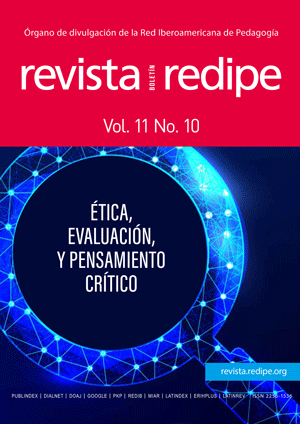Solidarity economy and comprehensive rural development in the municipality of Pauna Boyacá. From public policy to peasant cultural policy 2022.
Main Article Content
Keywords
Economy, Solidarity, Peace, Development
Abstract
The great opportunities that derive from historical events that attacked rural urban populations in post-conflict areas in the years from 1975 to 1990, especially in the western sub-area of the department of Boyacá, proposes local public policies that make interdisciplinarity between the economy and its social worldview of transcendental development, human geography and its ability to agglomerate agro-industrial productions, manifestations that, from their social patterns, produce comprehensive rural development and, finally, the actions that defend the dignity of all people, imprint on their human rights to carry out demonstrations and social movements that allow the connection as an area in parameters of cultural policy and peasant economy, with the sole purpose of housing social capital and human capital with an impact on all communities, which from the processes articulated to internal conflicts, deserve a new apology of comprehensive development, permeated by tourist, agro-industrial and community rural development contexts.
The academic work will have as an investigative base, a proposal with an interpretative paradigm, articulated to a qualitative approach and with descriptive and ethnographic typologies, where the sociocultural immersion allows the immanence of the phenomena, to produce a proposal of integral rural development, fused with solidarity and peasant economies, derived from proposals towards peace and dignity of all its inhabitants. It is a process that comes from community oral compilations called democracy for peace, SGI 2157 of the year 2017 - 2019, UPTC Tunja - Pauna research direction.
References
CEPAL, Férnandez, J “et al”. (2019). Enfoque territorial y análisis dinámico de la ruralidad. Alcances y límites para el diseño de políticas de desarrollo rural innovadoras en América Latina y el Caribe. P. 45. México D.F.
Gómez, N (2022). Origen de la palabra española cacao. Real Academia de la Lengua Española. En: https:// www.elespanol.com/curiosidades/ lenguaje/cual-origen-palabraespanola-castellano-cacaoetimologia/649435113_0.html. Pág.1.
Krugman, P; Wells, R; Olney, M (2012). Fundamentos de economía: los modelos de economía. ISBN: 978-84-291-2633- 4. P. 20. Barcelona, España.
López, L “et al” (2018). Problemática social y efectos de la sustitución de los cultivos de coca por cacao en el municipio de Pauna (Boyacá). Panorama Económico – Vol. 26, No. 4 - octubre - diciembre de 2018. P. 552.
MINCOMERCIO (2021). política de turismo cultural Colombia: destino turístico cultural, creativo y sostenible. P. 138 – 139. Bogotá D.C. En: https://www.mincit. gov.co/minturismo/calidad-y-desarrollosostenible/politicas-del-sector-turismo/ politica-de-turismo-cultural12-09-2022.
Oficina del alto comisionado para la paz (2018). Acuerdo final para la terminación del conflicto y la construcción de una paz estable y duradera. ISBN 978-958-18- 0453-5. P. 1. Bogotá D. C.
OTDB. Ordenamiento Territorial Departamental de Boyacá. (2022). Productividad sector agropecuario. Estudio Técnico. P. 34. Tunja, Boyacá – Colombia.
PER (2014). Manual para la formulación y ejecución de planes de educación rural. Capital Humano – capital social. ISBN 978-958-691-526-7. Bogotá D.C. P. 6. En: https://www.mineducacion.gov. co/1759/articles-329722_archivo_pdf_ Manual.pdf.12-09-2022.
Peralta. (2006). Etnografía y métodos etnográficos Análisis. (U. S. Tomás, Ed.) Revista Colombiana de Humanidades (74), 37.
Quintanal, H (2019). Etnografías contemporáneas del poder: formas de dominación en el mundo rural. ISBN 978-607-30-2624- 6. Universidad Nacional Autónoma de México, Ciudad Universitaria, C.P. 04510, Ciudad de México. www.iia. unam.mx. P. 5.
Ricoy. (2006). Contribución sobre los paradigmas de investigación Educação. (U. F. Maria, Ed.) Revista do Centro de Educação, 31(1), 11-22.
UPRA. Unidad de Planificación Rural Agropecuaria. (2019). Lecciones sobre agricultura familiar. P.1. en: https:// www.upra.gov.co/web/guest/busqueda? 07-09-2022.



